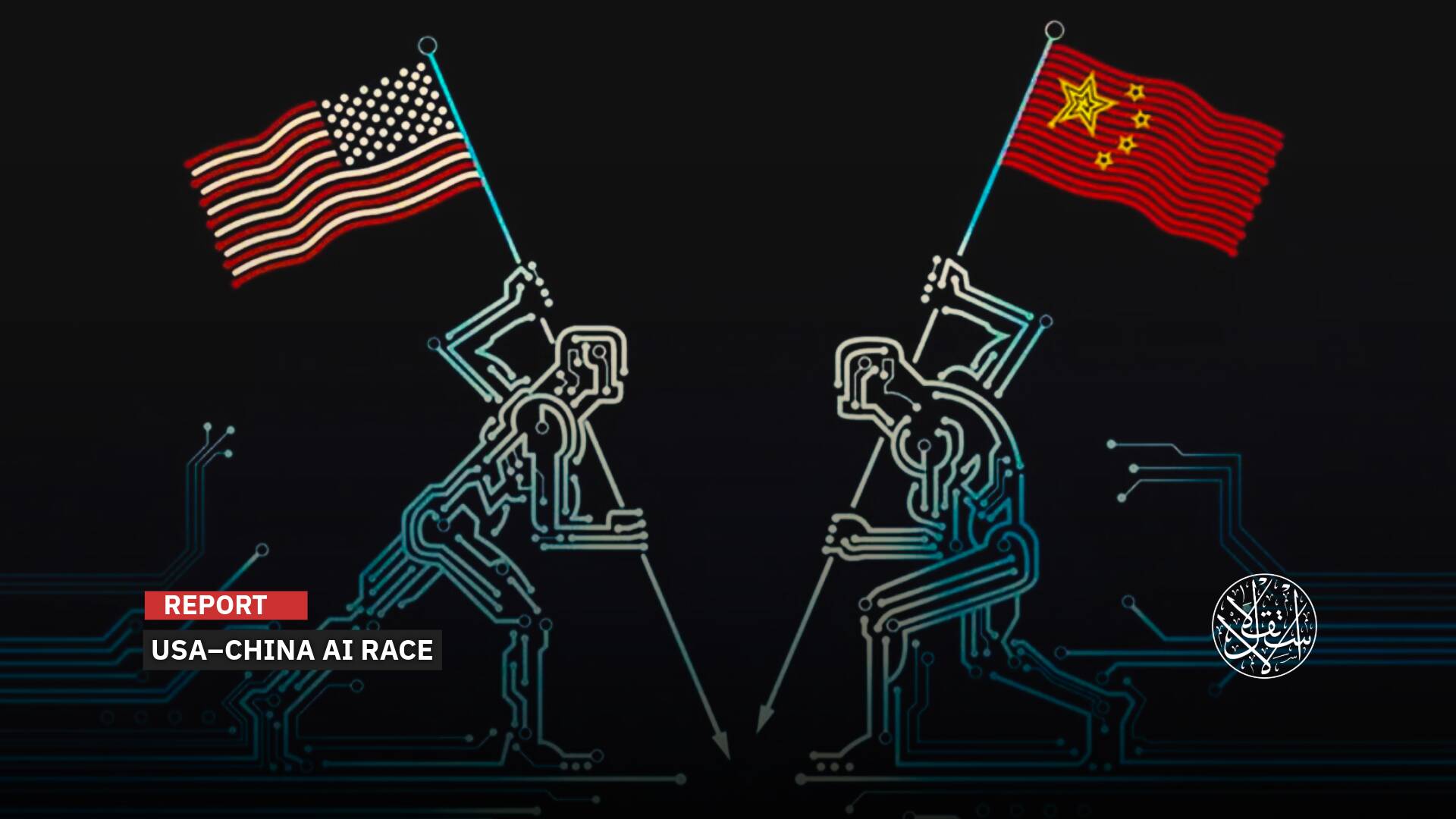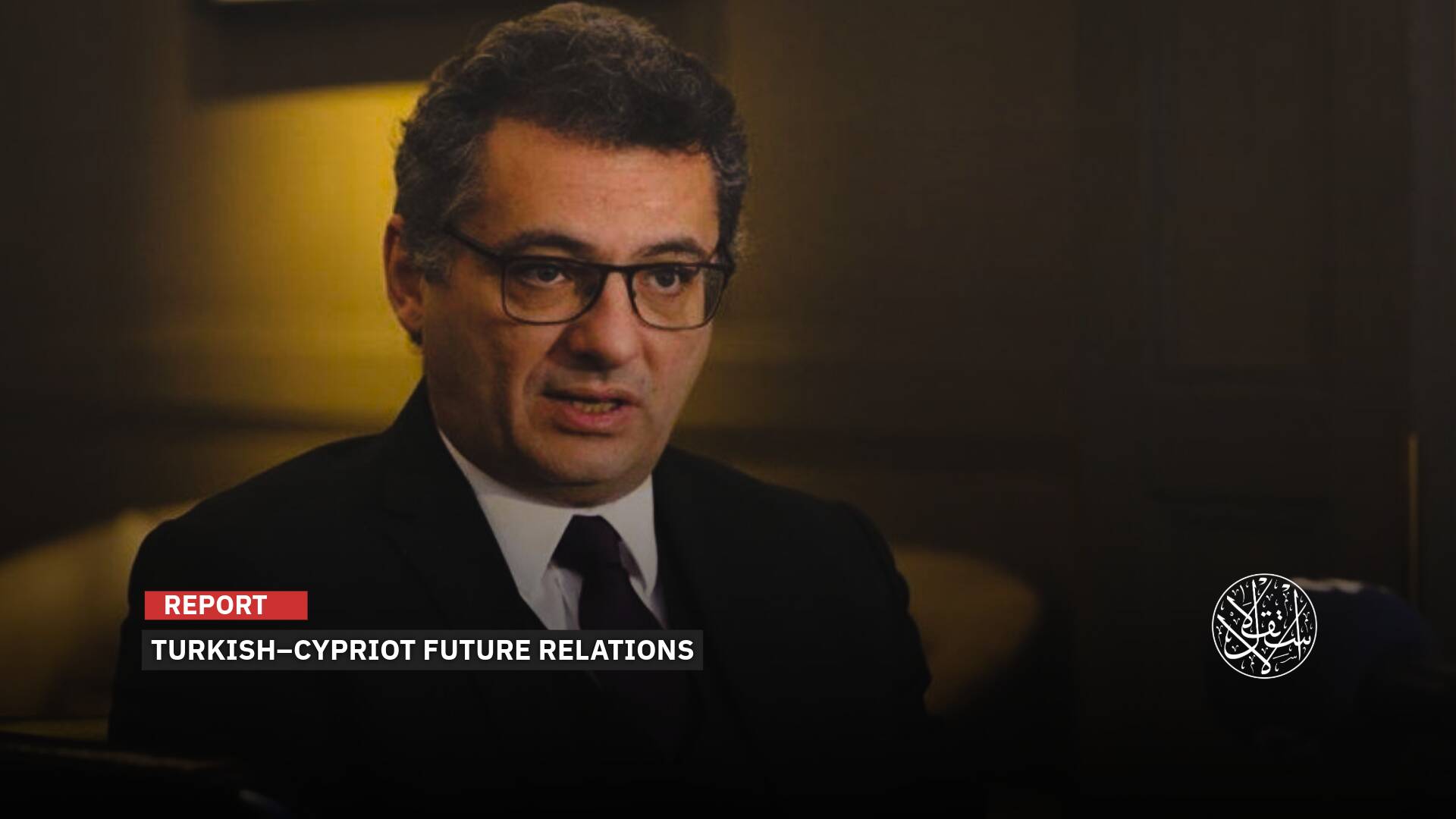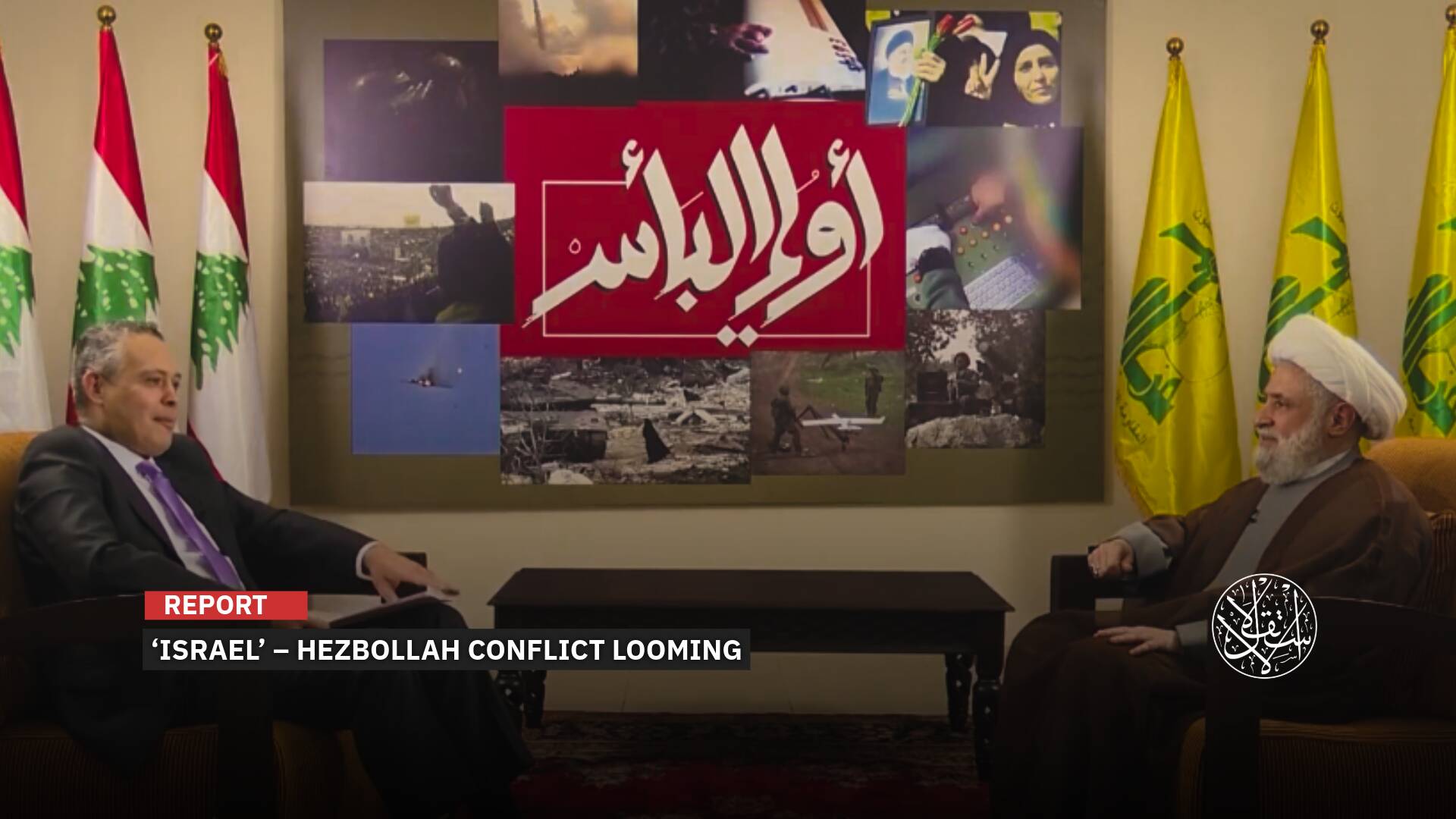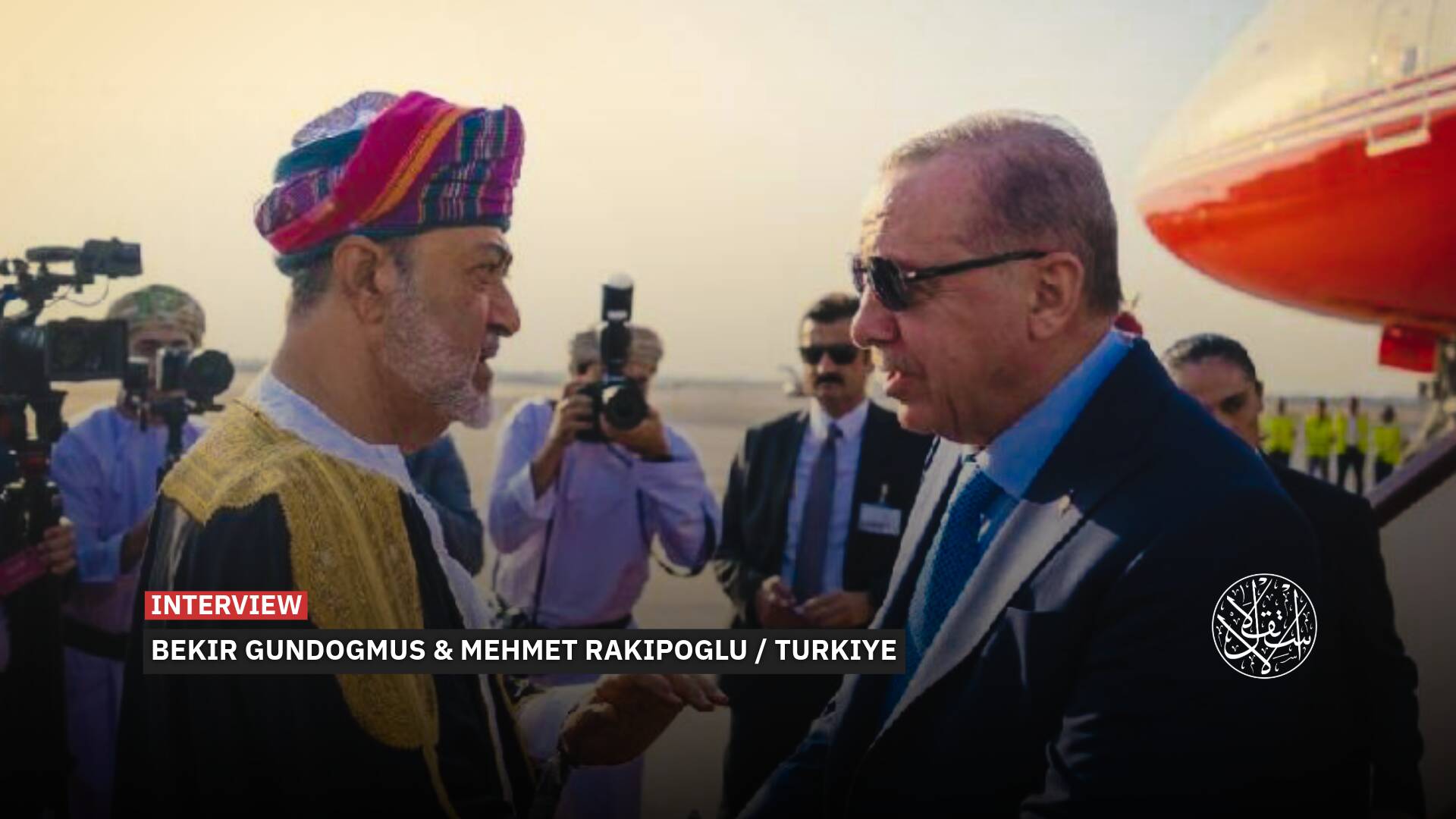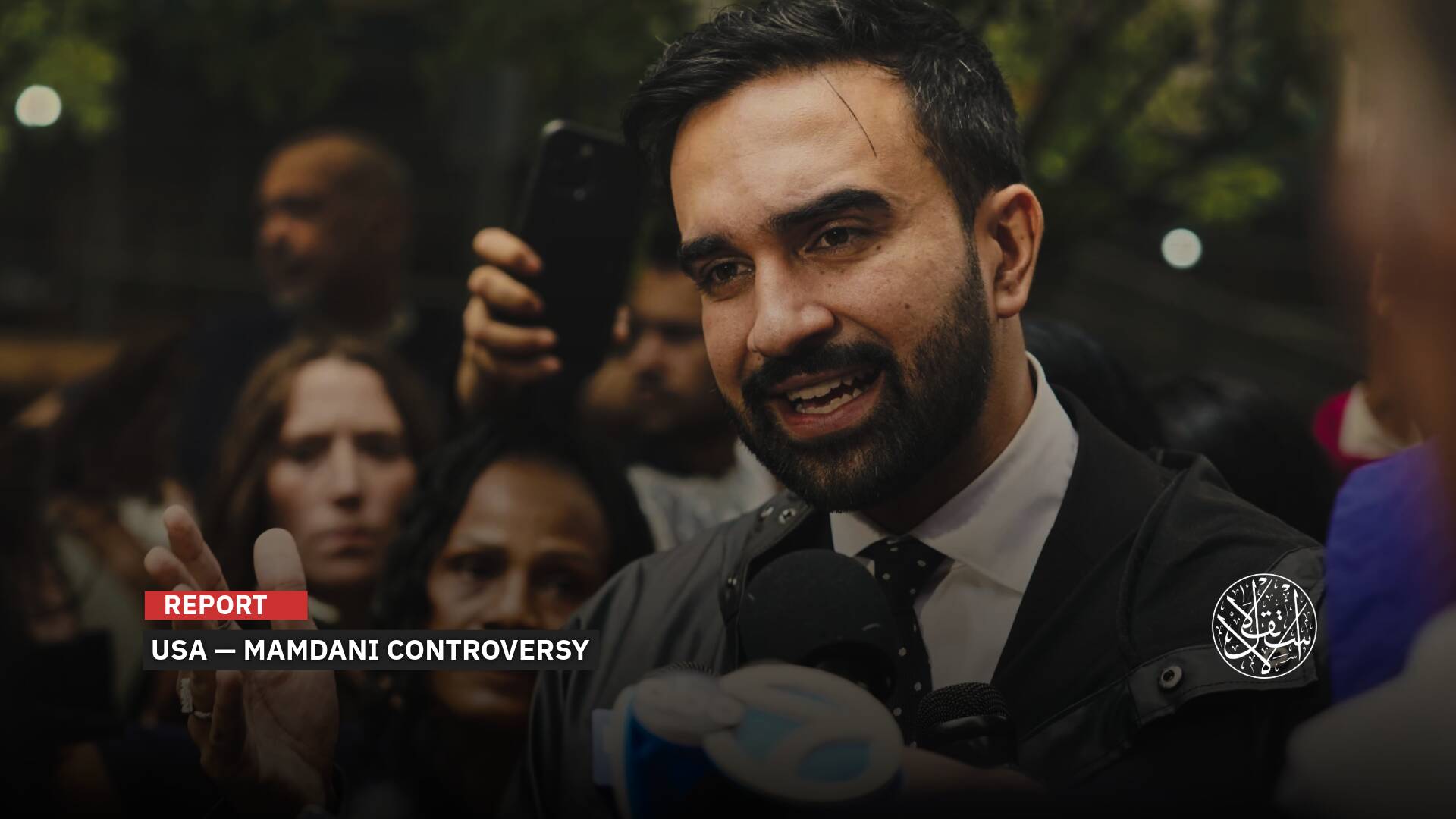Arab Diplomat: Far Right Has Become a Major Force, Reflecting Deterioration of European Values (Exclusive)

“The Europeans took to the streets for their own future before the future of the Palestinians.”
Former Iraqi Ambassador to Belgium Dr. Jawad al-Hindawi stated that right-wing parties have become the main force in European politics, and no European party forming a government can ignore them anymore.
He made this comment during an interview with Al-Estiklal, while discussing the significant gains achieved by far-right parties in the European Parliament elections held in the first week of June 2024.
The biggest shock occurred in France, where the far-right achieved more than 30 percent of the votes, prompting President Emmanuel Macron to dissolve the parliament and call for early legislative elections.
The Arab diplomat explained that Macron’s call for early elections aims to highlight the far-right as a frightening force to the French people, thereby nipping this rise in the bud.
Regarding the Israeli aggression on Gaza and its repercussions in Europe, al-Hindawi noted that the popular movement in Europe in solidarity with Gaza reflects the frustration against Zionist domination over the Europeans themselves. They took to the streets for their own future before the future of the Palestinians.
Nevertheless, he emphasized that Europe cannot deviate from America's stance on the aggression on Gaza. Some exceptional positions suggest a degree of independence, but in the end, they align with America.
Al-Hindawi, a former Iraqi Ambassador to Belgium and NATO, is a political analyst with a focus on European affairs. He heads the Arab-Europe Center for Policies and Capacity Enhancement in Brussels and lectures on political science at French universities.

European Parliament Elections
• How do you see the success of far-right parties in various countries in the recent European Parliament elections?
The rise of far-right and even non-extreme right-wing parties was expected. We can say they are making noticeable and gradual progress, albeit slowly, but it is a confident advance.
These parties now form the main force in political work and have become a significant factor that governments and decision-makers cannot ignore. Any party forming a government cannot overlook the far-right or even the non-extreme right-wing.
I believe this rise reflects a state of economic and moral decline in European societies, where people see the right-wing as a potential solution or hope to save them from this condition.
• After the election results, French President Emmanuel Macron dissolved the parliament and called for urgent parliamentary elections. Is this a gamble or a calculated step?
The constitution indeed allows the President to do so, and parliamentary systems grant the Prime Minister the right to dissolve the parliament as well.
In France’s case, the reason that drove Macron to this is the results achieved by Marine Le Pen's party in the European elections. Yes, these are European-level elections and not local within France, but this led Macron to conclude that this rise should have political consequences, and he and his party should prepare to face these consequences early.
Macron hopes that by dissolving the parliament, the French people will confront this rising tide now.
My analysis is that he is trying to portray the far-right as frightening to the people, or hopes that through early elections, he can nip this rise in the bud, whether at the European level or the local internal level.
He is sounding the alarm and awakening negative impressions among the people against the far-right, as if to say, "Now we must bring them down."
He is attempting to conduct what can be considered a popular mobilization and incitement to rally with the state against this imminent danger.
Of course, this involves significant risk, although I expect Macron will achieve what he aims for.

Aggression on Gaza
• What is your opinion on the European response to the Israeli aggression on Gaza? Is Europe’s stance merely aligned with the American position?
Europe cannot diverge from the American stance on the Gaza war, though occasional exceptional positions may hint at some degree of independence. Ultimately, however, their alignment with America's stance remains predominant.
For example, the statements of Josep Borrell, the EU’s High Representative for Foreign Affairs, are positive towards the people of Gaza and their martyrs and include criticism of Israel and its massacres, which are very good statements. But it doesn’t go beyond statements.
The reality is that Europe does not have a distinct or special stance on dealing with the Gaza war. This applies to European countries individually or the European Union as a whole, except for some countries like Spain and Norway, which have recognized the Palestinian state.
We have not seen a strong, unprecedented initiative from Europe or the EU to stop the war, find a clear and just solution, or issue significant resolutions against Israel. Here, we are talking about the governments.

• The European popular movement against the aggression on Gaza was notable and perhaps surprising. How do you view the government's handling of this matter?
Certainly, the popular movement in Europe against the war on Gaza represented a very important awakening and a great humanitarian awareness that should be studied in all its dimensions and implications.
This popular uprising is primarily against the state of Israel, not just against the war in Gaza. The war in Gaza was the event that ignited the situation, but these people took to the streets against the occupying state itself and against its existence through massacres, killings, and occupation.
This kind of uprising is very common in our countries, but for it to happen in Europe is striking and significant, deserving thorough study and contemplation.
This movement has transformed Palestine from a cause into a state. I believe this is reflected in the United Nations' decisions related to voting for the recognition of the State of Palestine and the opening of embassies for it.
All this did not come out of nowhere but is backed by this massive and remarkable movement. It is something that should be invested in to establish an independent Palestinian state.
I expect Israel to take this matter into serious consideration before making any international moves, as it now realizes the extent of the anger and rejection towards it.
This global and European awakening is an expression of the frustration against Zionist dominance over the Europeans themselves. They took to the streets for their future before the future of the Palestinians, although they are certainly sympathetic to Palestine. They know that Zionist control extends worldwide.
Operation al-Aqsa Flood brought out the disdain for the Zionist entity from within these people in Europe and expressed their desire to rid themselves of its dominance over the fabric of societies in general.
The demonstrators in Europe sent a clear message that this entity is "temporary and lacks permanence."
As for the handling by governments, it varies between repression and allowing demonstrations. However, European governments do not change their political stance easily, although there is hope that these popular and student movements will cause some change.

The Russian-Ukrainian War
• How do you assess European support for Ukraine since the Russian invasion? Do you foresee this support evolving to the point where Europe becomes an actual partner in the war?
Europe's stance on Ukraine in this war is very advanced and also demonstrates that Europe does not stray from the influence of the United States. The support takes various forms, not only military but also humanitarian, social, economic, security, and intelligence support, especially from Germany and France.
Recently, the French President made strong statements that annoyed Russia and its president, Putin, and even irritated some French political figures. My assessment of this support is that it is very advanced, almost approaching comprehensive solidarity with Ukraine.
However, I do not believe that this support will evolve to the extent that Europe becomes a public and actual partner in the war. Yes, there are European experts assisting the Ukrainian army and, of course, European weaponry.
But I do not expect Europe to actually engage in the battles due to various calculations related to the region, the potential expansion of the war, and Russia's reaction.
• Do you expect Ukraine to become a burden on Europe, leading to its abandonment?
There is no need for speculation; Ukraine has already become a burden on Europe, especially on the public level. From the beginning of the war, some of the European populace protested in support of Russia, which annoyed the United States and European governments.
The European people are frustrated and are bearing a significant economic burden due to this war. This was expected from the start, as Europeans care about their economic situation, and Ukraine represents a burden in this regard.
Thus, the main goal of the United States has been revealed, which is to weaken both Russia and Europe so that it can tighten its grip on both sides and even the world.
America does not abandon such goals in military situations, as history shows. The European people are aware of this, which is why they perceive Ukraine and its crisis as a burden on themselves and their interests.
Muslims and Refugees
• Recent reports have noted a significant migration of French Muslims to other countries. Is this due to Islamophobia?
I don't think so. These reports are not accurate. I see that Islam is generally in a state of coexistence in Europe and is even expanding, including in France, which has witnessed some incidents and movements against Muslims. These reports are exaggerated and contain some allegations.
In Europe, for example, 30 percent of the population of Brussels is Muslim. If your question pertains to France, these reports do not provide clear numbers and are exaggerated. This is my perspective.
• As time passes, Europe is tightening its border controls to prevent refugees from reaching it. What solutions are being proposed to manage this increased restriction?
There is no magical solution to the refugee problem. This is a historical crisis and will remain so. The best that can be done is to find a successful and well-planned management strategy to deal with this crisis.
Restricting land or sea borders will never be a solution, and refugees will find alternative ways because they are fleeing poverty or existential threats in their home countries, so retreat is not an option.
Several factors complicate the issue, such as those who benefit from the refugee crisis. Each country has its own approach to handling this crisis.
However, having a good management strategy in place for each country is the best way to handle refugees coming from their homelands where life has become impossible.
There is no clear agreement among all European countries on how to handle the refugee issue, making it difficult to say there is a unified policy on this matter. The problem involves politics, economics, societal realities, human rights, and many other intertwined issues.


